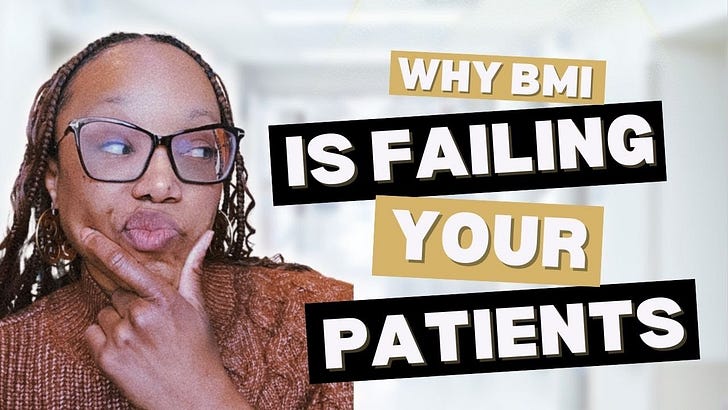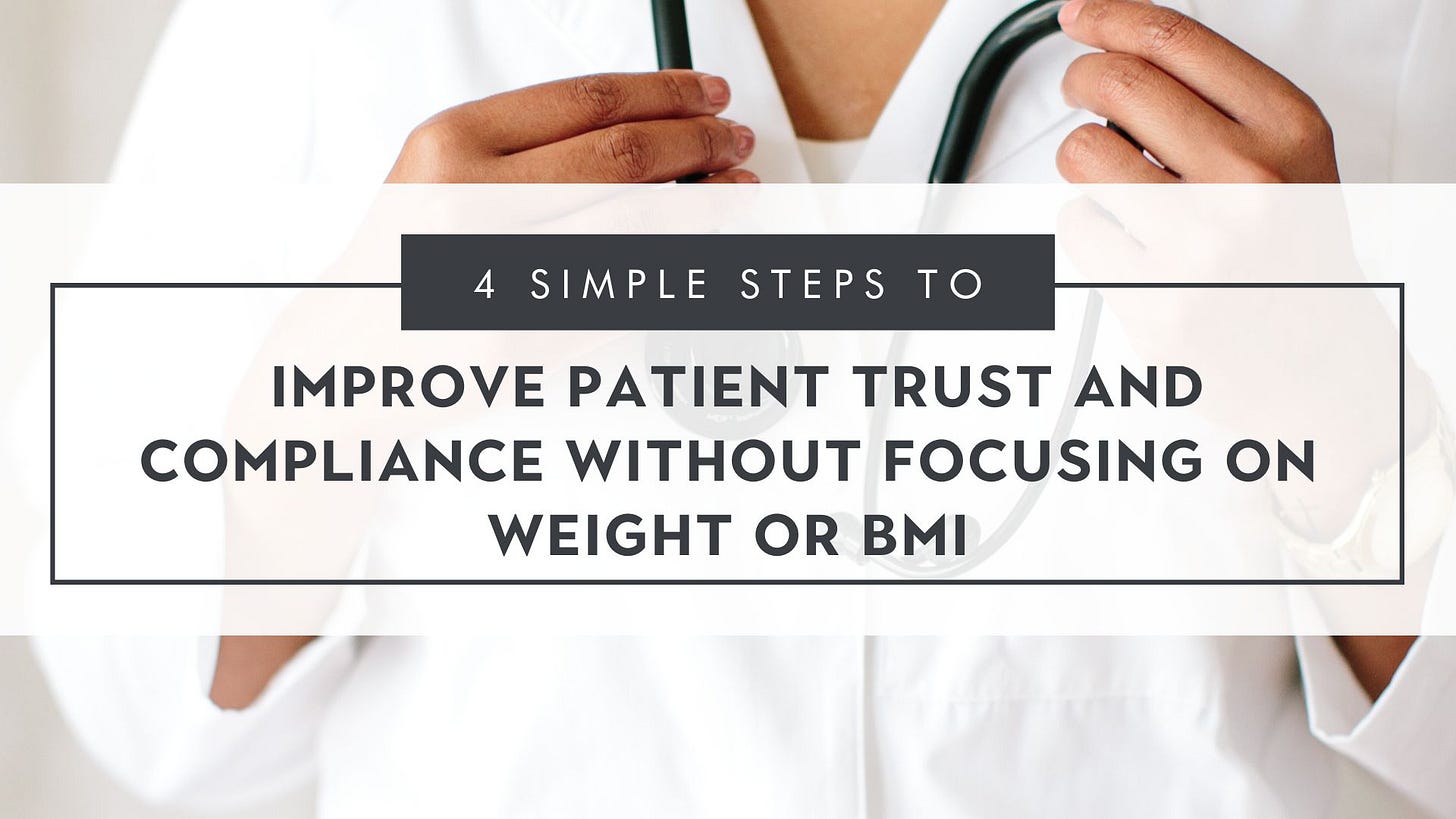What if weight loss wasn’t the answer?
In the spirit of new beginnings and growth for Spring, it's time for the healthcare field to kiss the BMI focused model goodbye!✌️
Like many health and wellness professionals, I got into the field to help people live healthier lives by maintaining a “healthy” diet and exercise routine. However, I really felt that people should also focus on maintaining a “healthy” weight.
I focused almost exclusively on weight loss when I started my health coaching practice. That meant creating content, programs, and plans centered around food and weight. Bootcamps, challenges, and, yes, even the plant-based diet filled my content calendar because I genuinely believed at the time that weight loss was the key to health gain.
Beyond the obvious that discriminating against other humans due to their size, weight, and shape is wrong, it’s also dangerous to their health.
Take the case of a woman I will call Keisha - not her real name - who went undiagnosed because her providers misdiagnosed her with ob*sity. Keisha is a woman with a larger body with a “high” BMI, so when she went to her doctor about the abdominal bloating and unintentional weight gain she was experiencing, she was told to lose weight.
For a year, Keisha consulted various diet and nutritional professionals who put her on low-calorie diets. After not losing weight, her general practitioner encouraged her to pursue bariatric surgery, which she agreed to. When Keisha went to the hospital for her initial physical examination ahead of the surgery, laboratory tests revealed that something was wrong.
After performing a CT scan, doctors found that Keisha had a vast mass inside of her abdomen and pelvis - remember her initial concern about abdominal bloating and unintentional weight gain? Because of the findings from the CT scan, the doctors decided to perform surgery to remove the mass, which weighed 46 kg (over 100 lbs!).
Upon further examination of the mass, they found a very large ovarian tumor that, while primarily non-aggressive, had small areas of cancer that were present and spreading! Keep in mind that Keisha has been evaluated for over a year by several doctors, but:
No one has gone beyond diagnosing her with ob*sity.
None had performed a comprehensive patient assessment, which would have revealed the root cause of her abdominal bloating and weight gain.
This tumor could have resulted in serious injury (or worse!).
I share this case study because it’s the most transparent case for me of what happens when we don’t adopt a weight-inclusive approach in healthcare. When I talk about weight inclusivity, I know some of my colleagues roll their eyes, but I genuinely need them to understand that Keisha’s case isn’t the exception - it’s, sadly, the rule!
When I started diving into the weight-inclusivity research, I realized how much I (and our healthcare system) truly needed to unlearn. When we make assumptions about a patient's health solely because of their weight or BMI, we are making a vital mistake that could, in truth, cost them their lives.
I don’t know about you, but that’s not a risk I want anyone taking with my life. So, let’s not take it with anyone else’s.
💡 That’s why I created the 4 Simple Steps to Improve Patient Trust and Compliance Without Focusing on Weight or BMI.
In this free masterclass, you’ll learn:
How to improve patient trust and compliance without relying on weight
A proven 4-step framework to implement weight-inclusive care
How to use functional and metabolic health markers instead of BMI
One of the things that I’ve learned through adopting a weight-inclusive approach is that you don’t need to focus on a person’s weight or BMI to improve their health. By not doing so, you’re not only going to build more trust with the patients, but they’ll be more likely to follow through with your recommendations.
➡️ I talk more about that in class, so register to save your spot at enhanceblackwomenshealth.com/masterclass
I can’t wait to see you in class,
Tomesha
P.S. Show up live, and you’ll receive my Bias-Free Intake Form, a ready-to-use template for equitable, weight-inclusive patient assessments
P.P.S. Like what you’re reading? Feel free to support my work: https://buymeacoffee.com/enhanceblackwomenshealth





